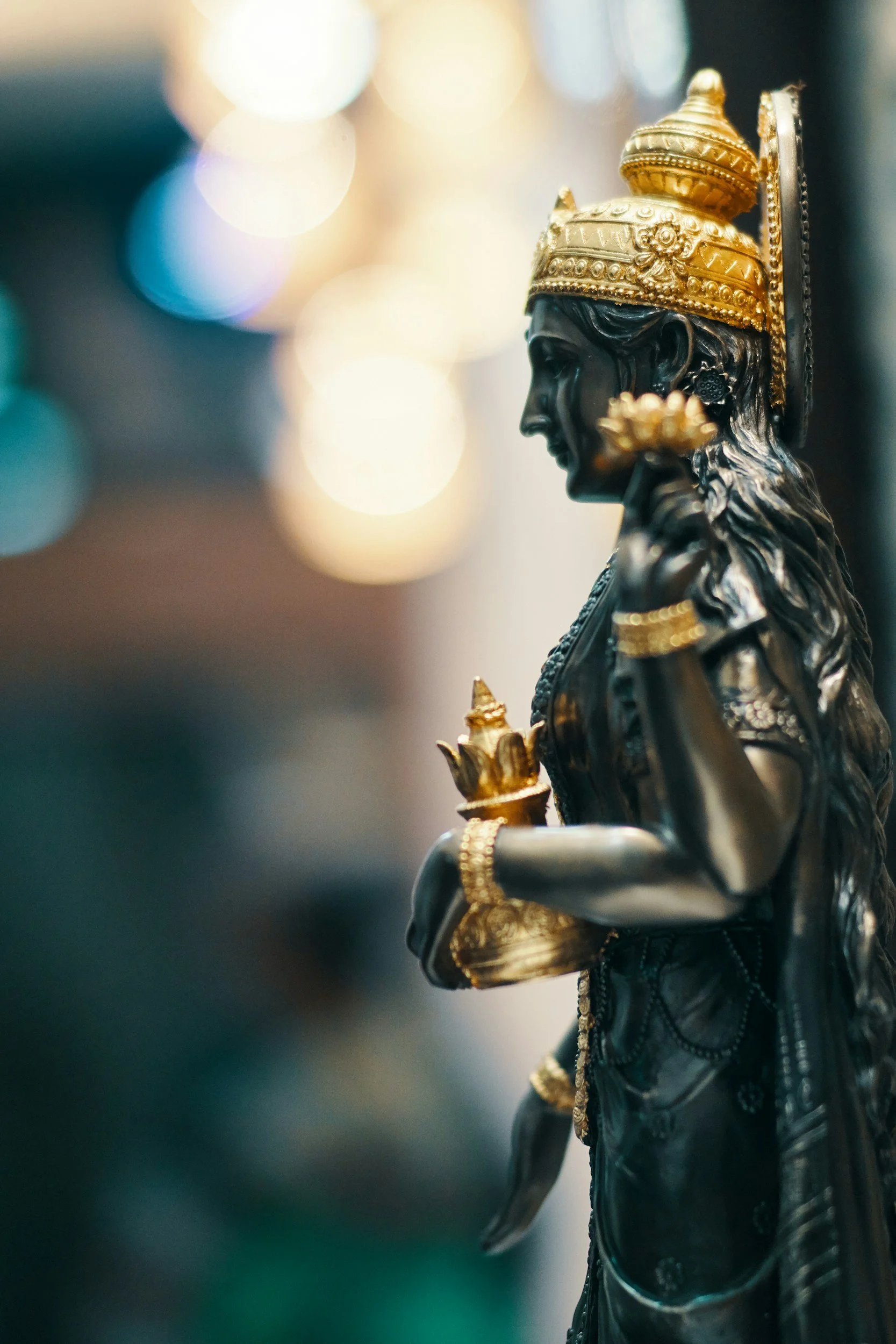Ilo Uwa: Reincarnation in Igbo Spirituality Covered In-depth
In Igbo traditions and spirituality, the concept of Reincarnation, known as Ilo Uwa or Ino Uwa, holds profound significance. The idea that a soul returns to this world after physical death, transcends simple explanations. To properly understand the concept of reincarnation, one must consider it as a multifaceted phenomenon and not just as a singular idea. Reincarnation, as the belief in a soul's journey through successive lifetimes, has fascinated humanity for centuries. The concept remains fascinating because it offers insights into the mysteries of human existence and the eternal cycle of life and death. In this blog post, we will look into the intricacies of reincarnation, shedding light on its multiple layers of meaning and purpose.
What is Reincarnation?
At its core, reincarnation posits that the soul transcends physical death, and undergoes a process of rebirth into new bodies or forms. This cyclical journey allows the soul to evolve, learn, and grow through diverse experiences and lifetimes. In modern times, many view reincarnation as a matter of belief. However, ancient Igbo ancestors regarded it as a factual reality, supported by their indigenous knowledge systems. Whether viewed as a spiritual truth, a philosophical concept, or a religious doctrine, the concept of reincarnation continues to resonate with the innate human quest for meaning and understanding of the cycle life.
The Multifaceted Nature of Reincarnation:
Reincarnation in Igbo belief is not a singular phenomenon but rather a multifaceted process with multiple reasons and purposes. When a person departs from this plane through death, it is believed that they transition to the astral plane (Ijite), where they await reincarnation. This process where a soul awaits reincarnation is not always a straightforward process, as there are many factors in Igbo culture and spirituality that can affect whether or not a soul is able to reincarnate into their lineage or the community at all, or how soon the soul can reincarnate. It's also believed to be possible in certain cases that a soul not already part of a lineage can be born into that lineage. Certain spirits or souls can also enter a lineage from unidentified realms for specific reasons, and they can remain unbound to the lineage during other cycles of reincarnation. This is a possibility that can be identified as a specific type of Ogbanje in Igbo reality.
Reincarnation encompasses a myriad of purposes, each of them serving as a catalyst for spiritual growth and evolution. From the resolution of karmic debts to the pursuit of spiritual enlightenment or development, the journey a soul embarks on during reincarnation can unfold along diverse pathways and hold multiple possibilities, guided by the eternal rhythms of cosmic intelligence.
9 Reasons for Reincarnation:
Spiritual Growth & Evolution: One of the primary purposes of reincarnation is spiritual growth and evolution. Through successive lifetimes, souls embark on a journey of self-discovery, learning, and transformation. Each incarnation offers opportunities for a soul to gain lessons, healing, and the cultivation of spiritual virtues such as compassion, wisdom, and love.
Karmic Resolution & Expiation: Reincarnation provides a mechanism for resolving karmic debts accrued from past actions and experiences. Souls reincarnate to balance the scales of karma, to rectify past wrongs and to fulfill unfinished tasks or obligations. This process of expiation allows them to progress on their spiritual path and attain higher levels of purity and liberation (freedom for their soul).
Purification & Ascension: Reincarnation serves as a pathway for purification and ascension of the soul. Through successive lifetimes, souls undergo experiences aimed at expiation which leads to spiritual growth, ultimately leading them back to source energy for ascension into higher realms of existence. Each incarnation offers opportunities for growth, and for a soul to transcend this realm of existence all together.
Learning & Experience: Another purpose of reincarnation is the acquisition of knowledge, wisdom, and experience. Souls incarnate into diverse circumstances, environments, and relationships to gain insights and perspectives that contribute to their spiritual growth and understanding. Each lifetime offers unique opportunities for learning and personal development.
Service & Contribution: Many souls (especially ascended ones e.g Ndi Ichie) choose to reincarnate with a sense of purpose and mission, they seek to serve humanity and contribute to the greater good. These souls incarnate as teachers, healers, leaders, and catalysts for positive change, inspiring others and leaving a lasting impact on the world.
Healing and Transformation: Reincarnation can serve as a pathway for healing and transformation, allowing souls to overcome past traumas, limitations, and obstacles. Through successive lifetimes, they have the opportunity to heal emotional wounds, release negative patterns, and embrace their true potential in the divine cosmic plan.
Dreaming Attachment: The term Ilo Uwa or Ino Uwa is used to refer to reincarnation in Igbo language. The concept of Ilo (dreaming) or Ino (staying attached) and Uwa (the world), serve as a metaphorical pointers to the ancestral understanding Igbos have of the incarnating soul. It is understood esoterically, that the human world is not the “real” world, our world is believed to be illusionary in its nature. Every soul that comes alive in this world is believed to simply be in deep sleep elsewhere, and upon awakening, they confront questions regarding the purpose of their existence and whether they have fulfilled their intended roles in the dream world they traveled to. Reincarnation then becomes a channel for spiritual self-discovery and fulfillment of higher purposes which might involve collecting data of consciousness from human experiences back to source (infinite intelligence).
Understanding Reality: Reincarnation extends beyond mere physical existence; it encompasses the understanding of reality itself. In the same way positive advanced beings may reincarnate to offer guidance and support to humanity, negative beings may also reincarnate to gain insight into the complexities of human existence, in order to understand how they can navigate or control it. This interplay between light and shadow shapes the evolution of consciousness on both individual and collective levels. It also goes to show that for beings from higher more advanced dimensions, reincarnation can also be a tool to gain insight and understand human reality on a larger scale.
For the Sake of Being or Existing: Some souls reincarnate simply to embrace life's beauty and experience human existence without any specific agenda or karmic obligations. They exist purely for the sake of being, passive participants in the human consciousness. These souls are also a form Ogbanje in Igbo spirituality, and they may have the ability to evade many of life's challenges and consequences, reveling in the opportunity and possibility of partaking in reincarnation solely for the joy of existence. This purpose of reincarnation also suggests that souls burdened with karmic debts and hardships across multiple lifetimes may be granted a respite—a lifetime of rest—before continuing their pursuit of enlightenment.
In Igbo spirituality, the concept of reincarnation emerges as a solid testament to the interconnectedness of all beings and realms in the universe. Through successive lifetimes, souls can embark on a journey of purification, growth, and ascension, amongst other things while being guided by the cosmic flow of divine intelligence. As we continue to contemplate on the mysteries reincarnation, striving for deeper understanding of our spiritual essence, it is important to take note of the connection this phenomenon has to collective and subjective consciousness. While we are all a part of the collective unconscious—the universal mind, we are also intricately connected to our own families, communities and lineages under subjective consciousness. This connection influences various aspects of our existence, including how community dynamics, cultural contexts, family histories and environmental influences can affect what purpose reincarnation serves in each persons life.
We hope you enjoyed this post and got some good insights. Leave us a comments below and let us know what you think of the concept of reincarnation. Don’t forget to share this post with a friend!
Recommended Resources:
Ilo Uwa (Reincarnation and The Afterlife Explained) - Igbo Spirituality | Medicine Shell (YouTube)
Igbo Sacrifices: Chi and Onye Uwa Are Very Different (REVELATIONS) | Deep Afroculture (YouTube)








